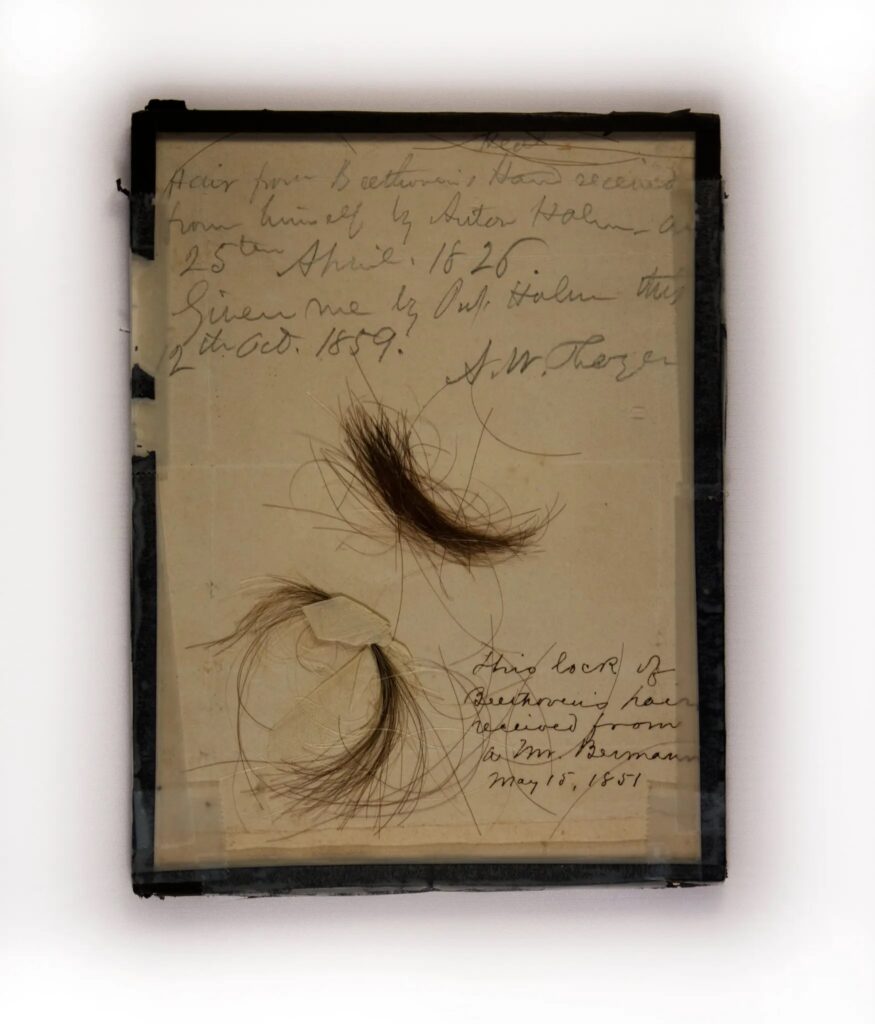07/05/2024
07/05/2024

NEW YORK, May 7: Two centuries after Ludwig van Beethoven premiered his groundbreaking Ninth Symphony, a discovery from his hair samples sheds new light on the composer's enduring mystery. On the eve of the symphony's 200th anniversary, revelations from hair analysis suggest toxic levels of lead, arsenic, and mercury may have contributed to his deafness and numerous health issues.
The theater was alive with anticipation on May 7, 1824, as Beethoven, then 53, took the stage at Vienna's Theater am Kärntnertor for the premiere of his Ninth Symphony. Amidst the fanfare, an incident during the performance's second movement highlighted the composer's profound deafness. Oblivious to the applause, Beethoven, conducting with his back to the audience, was turned around by a soloist to witness the fervent acclaim he could not hear.
Decades of speculation have surrounded Beethoven's health, attributing his deafness and chronic ailments to various theories including Paget's disease of bone, irritable bowel syndrome, and even syphilis. However, recent research delving into the locks of the composer's hair offers fresh insights into his medical history.
The journey to uncover the truth began with the realization that advancements in DNA analysis could provide a glimpse into Beethoven's physiological struggles. Led by William Meredith, a team of researchers embarked on a quest to locate locks of Beethoven's hair, eventually securing samples from auctions and museums. Australian businessman Kevin Brown, driven by a passion for Beethoven's legacy, facilitated the analysis of these hair strands at the Mayo Clinic.
The results, detailed in a letter published in the journal Clinical Chemistry, unveiled staggering levels of lead, arsenic, and mercury in Beethoven's hair. Lead concentrations, in particular, were alarmingly high, with levels far exceeding normal thresholds. According to Dr. Paul Jannetto, the lab director at Mayo Clinic, these toxic substances could have contributed significantly to Beethoven's deteriorating health, including his deafness and gastrointestinal issues.
While the discovery does not imply deliberate poisoning, historians speculate that Beethoven's exposure to lead-laden wine, common in 19th-century Europe, may have played a significant role. Lead acetate, known as "lead sugar," was often added to wine to enhance its flavor, posing a grave health risk to regular consumers like Beethoven.
The revelation of toxic levels in Beethoven's hair samples offers a new perspective on the composer's lifelong struggle with illness and deafness. As the world commemorates the 200th anniversary of his Ninth Symphony, Beethoven's legacy endures not only through his timeless compositions but also through the enduring quest to unravel the mysteries of his extraordinary life.


